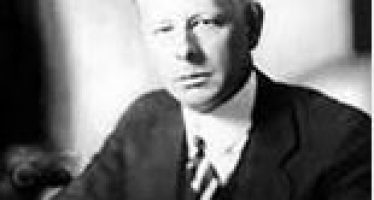Mohamed Ould Abdel Aziz: A Pragmatist Claiming Centre Stage
 It is a long lane that has no turning. The life of Mauritanian president Mohamed Ould Abdel Aziz is marked by quite a few abrupt twists and turns. In August 2008, Mr Abdel Aziz masterminded the military coup that toppled the democratically elected government of President Cheikh Abdallahi. International rebuke duly followed. The African Union (AU) declared Mr Abdel Aziz persona non grata and banned him from traveling anywhere in the continent.
It is a long lane that has no turning. The life of Mauritanian president Mohamed Ould Abdel Aziz is marked by quite a few abrupt twists and turns. In August 2008, Mr Abdel Aziz masterminded the military coup that toppled the democratically elected government of President Cheikh Abdallahi. International rebuke duly followed. The African Union (AU) declared Mr Abdel Aziz persona non grata and banned him from traveling anywhere in the continent.
Now, barely six years later, Mr Abdel Aziz is the chairman of that same African Union. He also was re-elected to a second term as president of Mauritania. Though a coup leader twice over, President Abdel Aziz is no longer an outcast. In fact, during a recent visit to Washington he was lavishly praised by US Secretary of State John Kerry who repeatedly called Mr Abdel Aziz a “key leader” and congratulated him on his election to the chair of the AU.
The secret to Mr Abdel Aziz’ good fortune is perhaps his insistence on order and dislike of Islamic fundamentalism. It helps that he generally pursues his goals without resorting to open violence even though few in Nouakchott doubt that President Abdel Aziz retains a strong grip on the army.
Contrary to other coup leaders in West Africa, Mr Abdel Aziz never seemed quite at ease wielding dictatorial powers. After he assisted in the removal of President Maaouya Taya in 2005, Mr Abdel Aziz insisted the military shorten their hold on power and convoke elections. As commander of the elite Presidential Guard Battalion, then-Colonel Aziz had ways of imposing his will. It also enabled him to ensure fair and largely fraud-free elections.
However, three years later Mr Abdel Aziz – now a general – again found himself at odds with a president, this time over alleged attempts at creating a single party state and financial mismanagement. The president was promptly removed in a bloodless coup and a High Council of State instituted to prepare the country for a return to democracy within a year.
That timetable was kept almost to the day and on August 5, 2009, Abdel Aziz was sworn in as president – a grey eminence at long last emerging from the shadows. Last June, President Aziz was re-elected to a second term in office receiving 82% of the vote in a field of five contenders. Some opposition parties, still sour over the 2008 coup, boycotted the election. However, almost 57% of registered voters turned up at the polls. Observers dispatched by the African Union judged the electoral process “relatively” fair and peaceful.
In Abdel Aziz, the African Union has now found a chairman who is a pragmatist first and foremost. Elected to the job at the beginning of 2014, Mr Abdel Aziz is concentrating his efforts on aligning Africa in order for the continent to speak with one voice as it reasserts its place and role in the world. At the opening session of the 69th General Assembly of the United Nations, President Abdel Aziz said that, “as Africa strives to become an area free of scourges, wars, and conflicts – and a place where justice, good governance, and respect for human rights prevail – we need unity in purpose and resolve.”
As a skilful operator with more political substance than rhetorical fluff, AU Chairman Abdel Aziz has actually a better chance than most at pushing Africa’s development agenda forwards. Notwithstanding his earlier peccadilloes as a coup plotter, Mr Abdel Aziz has become the voice of reason in a region not devoid of turmoil. Mauritania’s constructive approach to the unsettling events in neighbouring Mali have made President Abdel Aziz into a regional leader of note and his country into an oasis of stability.
You may have an interest in also reading…
Jesse Lauriston Livermore: The Boy Plunger
Playing the stock market in order to make a bundle is not a pursuit deemed suitable for the faint of
Christine Riordan: Leading Rapid Change
In today’s accelerated business environment, the ability to anticipate and actively lead change on a daily basis is essential for
Reshma Sohoni: An Identity and an Ambition Forged Through a Lifetime of Migration — and Adaptation
Reshma Sohoni migrated to the US from India at the age of 10, moved to France to pursue an MBA

















































































